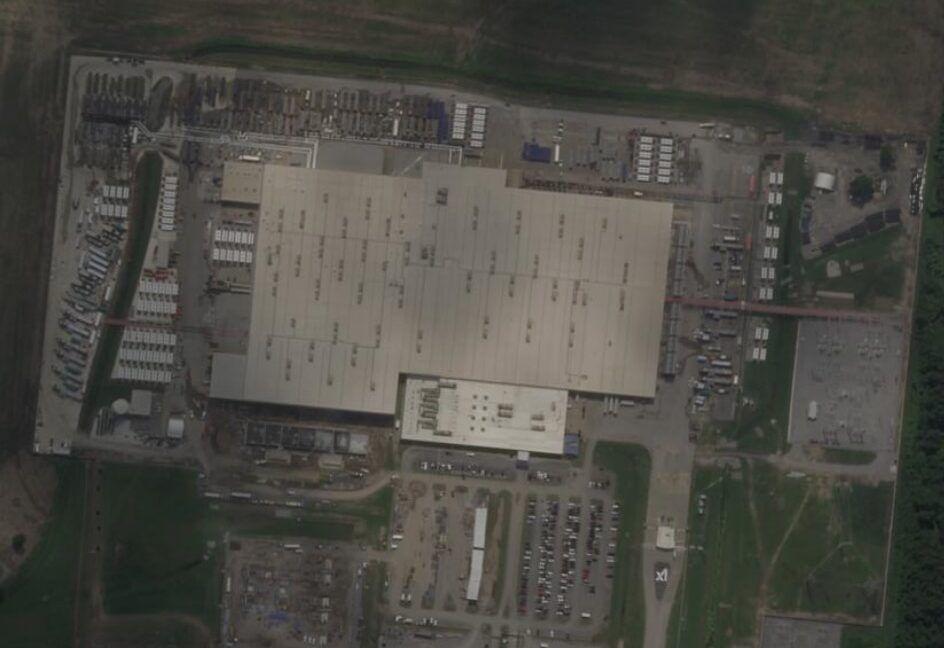NAACP and Environmental Groups Challenge xAI's Data Center Permit in Memphis, Citing Clean Air Act Violations
4 Sources
4 Sources
[1]
Permit for xAI's data center blatantly violates Clean Air Act, NAACP says
xAI continues to face backlash over its Memphis data center, as the NAACP joined groups today appealing the issuance of a recently granted permit that the groups say will allow xAI to introduce major new sources of pollutants without warning at any time. The battle over the gas turbines powering xAI's data center began last April when thermal imaging seemed to show that the firm was lying about dozens of seemingly operational turbines that could be a major source of smog-causing pollution. By June, the NAACP got involved, notifying the Shelby County Health Department (SCHD) of its intent to sue xAI to force Elon Musk's AI company to engage with community members in historically Black neighborhoods who are believed to be most affected by the pollution risks. But the NAACP's letter seemingly did nothing to stop the SCHD from granting the permits two weeks later on July 2, as well as exemptions that xAI does not appear to qualify for, the appeal noted. Now, the NAACP -- alongside environmental justice groups; the Southern Environmental Law Center (SELC); and Young, Gifted and Green -- is appealing. The groups are hoping the Memphis and Shelby County Air Pollution Control Board will revoke the permit and block the exemptions, agreeing that the SCHD's decisions were fatally flawed, violating the Clean Air Act and local laws. SCHD's permit granted xAI permission to operate 15 gas turbines at the Memphis data center, while the SELC's imaging showed that xAI was potentially operating as many as 24. Prior to the permitting, xAI was accused of operating at least 35 turbines without the best-available pollution controls. In their appeal, the NAACP and other groups argued that the SCHD put xAI profits over Black people's health, granting unlawful exemptions while turning a blind eye to xAI's operations, which allegedly started in 2024 but were treated as brand-new in 2025. Significantly, the groups claimed that the health department "improperly ignored" the prior turbine activity and the additional turbines still believed to be on site, unlawfully deeming some of the turbines as "temporary" and designating xAI's facility a new project with no prior emissions sources. Had xAI's data center been categorized as a modification to an existing major source of pollutants, the appeal said, xAI would've faced stricter emissions controls and "robust ambient air quality impacts assessments." And perhaps more concerningly, the exemptions granted could allow xAI -- or any other emerging major sources of pollutants in the area -- to "install and operate any number of new polluting turbines at any time without any written approval from the Health Department, without any public notice or public participation, and without pollution controls," the appeal said. The SCHD and xAI did not respond to Ars' request to comment. Officials accused of cherry-picking Clean Air Act The appeal called out the SCHD for "tellingly" omitting key provisions of the Clean Air Act that allegedly undermined the department's "position" when explaining why xAI qualified for exemptions. Groups also suggested that xAI was getting preferential treatment, providing as evidence a side-by-side comparison of a permit with stricter emissions requirements granted to a natural gas power plant, issued within months of granting xAI's permit with only generalized emissions requirements. "The Department cannot cherry pick which parts of the federal Clean Air Act it believes are relevant," the appeal said, calling the SCHD's decisions a "blatant" misrepresentation of the federal law while pointing to statements from the Environmental Protection Agency (EPA) that allegedly "directly" contradict the health department's position. For some Memphians protesting xAI's facility, it seems "indisputable" that xAI's turbines fall outside of the Clean Air Act requirements, whether they're temporary or permanent, and if that's true, it is "undeniable" that activity violates the law. They're afraid the health department is prioritizing xAI's corporate gains over their health by "failing to establish enforceable emission limits" on the data center, which powers what xAI hypes as the world's largest AI supercomputer, Colossus, the engine behind its controversial Grok models. Rather than a minor source, as the SCHD designated the facility, Memphians think the data center is already a major source of pollutants, with its permitted turbines releasing, at minimum, 900 tons of nitrogen oxides (NOx) per year. That's more than three times the threshold that the Clean Air Act uses to define a major source: "one that 'emits, or has the potential to emit,' at least 250 tons of NOx per year," the appeal noted. Further, the allegedly overlooked additional turbines that were on site at xAI when permitting was granted "have the potential to emit at least 560 tons of NOx per year." But so far, Memphians appear stuck with the SCHD's generalized emissions requirements and xAI's voluntary emission limits, which the appeal alleged "fall short" of the stringent limits imposed if xAI were forced to use best-available control technologies. Fixing that is "especially critical given the ongoing and worsening smog problem in Memphis," environmental groups alleged, which is an area that has "failed to meet EPA's air quality standard for ozone for years." xAI also apparently conducted some "air dispersion modeling" to appease critics. But, again, that process was not comparable to the more rigorous analysis that would've been required to get what the EPA calls a Prevention of Significant Deterioration permit, the appeal said. Groups want xAI's permit revoked To shield Memphians from ongoing health risks, the NAACP and environmental justice groups have urged the Memphis and Shelby County Air Pollution Control Board to act now. Memphis is a city already grappling with high rates of emergency room visits and deaths from asthma, with cancer rates four times the national average. Residents have already begun wearing masks, avoiding the outdoors, and keeping their windows closed since xAI's data center moved in, the appeal noted. Residents remain "deeply concerned" about feared exposure to alleged pollutants that can "cause a variety of adverse health effects," including "increased risk of lung infection, aggravated respiratory diseases such as emphysema and chronic bronchitis, and increased frequency of asthma attack," as well as certain types of cancer. In an SELC press release, LaTricea Adams, CEO and President of Young, Gifted and Green, called the SCHD's decisions on xAI's permit "reckless." "As a Black woman born and raised in Memphis, I know firsthand how industry harms Black communities while those in power cower away from justice," Adams said. "The Shelby County Health Department needs to do their job to protect the health of ALL Memphians, especially those in frontline communities... that are burdened with a history of environmental racism, legacy pollution, and redlining." Groups also suspect xAI is stockpiling dozens of gas turbines to potentially power a second facility nearby -- which could lead to over 90 turbines in operation. To get that facility up and running, Musk claimed that he will be "copying and pasting" the process for launching the first data center, SELC's press release said. Groups appealing have asked the board to revoke xAI's permits and declare that xAI's turbines do not qualify for exemptions from the Clean Air Act or other laws and that all permits for gas turbines must meet strict EPA standards. If successful, groups could force xAI to redo the permitting process "pursuant to the major source requirements of the Clean Air Act" and local law. At the very least, they've asked the board to remand the permit to the health department to "reconsider its determinations." Unless the pollution control board intervenes, Memphians worry xAI's "unlawful conduct risks being repeated and evading review," with any turbines removed easily brought back with "no notice" to residents if xAI's exemptions remain in place. "Nothing is stopping xAI from installing additional unpermitted turbines at any time to meet its widely-publicized demand for additional power," the appeal said. NAACP's director of environmental justice, Abre' Conner, confirmed in the SELC's press release that his group and community members "have repeatedly shared concerns that xAI is causing a significant increase in the pollution of the air Memphians breathe." "The health department should focus on people's health -- not on maximizing corporate gain," Conner said.
[2]
Elon Musk's xAI permits challenged by NAACP, environmental groups in Memphis
Elon Musk announced his new company xAI which he says has the goal to understand the true nature of the universe. Opposition to xAI's supercomputer facility in Memphis, Tennessee, intensified on Wednesday after environmental and civil rights groups filed to appeal a permit that allows the company to run natural gas-burning turbines to power its massive data center. When xAI, which is run by Elon Musk, first set up in Memphis last year, the artificial intelligence startup said the turbines it installed initially were temporary and too small to require permits. The company categorized them as "nonroad engine" style generators. Residents living near the facility complained for months that emissions from the turbines were creating a stench, worsening air pollution in Memphis, and disproportionately impacting people in nearby majority-Black communities. Still, the Shelby County Health Department issued a permit on July 2, allowing xAI to use up to 15 of the turbines. The department agreed that the turbines were small enough to be considered nonroad engines. In the appeal, dated July 15, the Southern Environmental Law Center (SELC), which is representing the NAACP, and an environmental group called Young, Gifted & Green claim that the county's health department had ignored residents' concerns. The SELC also argued that the health department miscategorized the turbines used by xAI and issued the permits improperly, a violation of the Clean Air Act and some local environmental regulations. NAACP CEO Derrick Johnson said in a statement that, "Our health shouldn't be threatened at the hands of billionaires who circumvent the law." The gas-burning turbines emit nitrogen oxides and formaldehyde, among other pollutants, according to spec sheets on the website of Solaris Energy Infrastructure, xAI's partner and installer. Exposure to high levels of nitrogen oxides, which are precursors to ozone formation, have been associated with higher risk of death from respiratory disease. In a statement to CNBC on Wednesday evening, xAI said it was "disheartened (but not surprised)" to see the SELC's appeal. The company accused the firm of making a "baseless, politically driven appeal," and said it has "and will continue to comply with all federal, state and local laws." Environmental concerns aren't the only controversy facing xAI as the company tries to challenge OpenAI, Google, Meta and others in developing large AI models and services on top of them. Grok, xAI's chatbot, recently began to generate and spread antisemitic posts across X, including some that praised Hitler. The company apologized days later for making code updates that caused Grok to spit out the offensive content. Recently, xAI also launched a new Grok feature allowing users to access "AI companions." In tests by NBC News, some of the companions pressured Grok users into sexually explicit or violent conversations.
[3]
Elon Musk's xAI Unveils 'Sustainable' Way To Cool Memphis Data Center Amid Criticism From Environmental Rights Groups - Tesla (NASDAQ:TSLA), Advanced Micro Devices (NASDAQ:AMD)
Elon Musk-led artificial intelligence company, xAI, unveiled new technology that will help the company "sustainably" cool its Memphis data center. What Happened: Taking to social media platform X on Thursday, the company announced it was constructing "the world's largest ceramic membrane bioreactor (MBR) to sustainably supply 13 million gallons per day of cooling water to our Colossus Supercomputer." A Membrane Bioreactor is a combination of technologies used in wastewater treatment by microfiltration or ultrafiltration with a biological wastewater treatment process in which biological organisms or enzymes are used to filter the water. xAI says the cooling apparatus will use untreated wastewater from a nearby wastewater treatment plant to cool the Colossus Supercomputer facility. Why It Matters: The announcement follows criticism of xAI by environmentalists and rights groups for its use of Gas-burning turbines to cool the data center, which critics say increases air pollution in Memphis and disproportionately affects Black-majority communities. xAI also recently announced Grok for Government, after the company won over $200M worth of defense contracts from the Pentagon to scale the U.S. defense's AI capabilities. Grok is also being offered on all Tesla Inc. TSLA vehicles in the U.S., with an Advanced Micro Devices Inc.'s AMD Ryzen chipset powering the onboard vehicle computer. Read Next: Elon Musk's Tesla Once Built Cars In A Tent To Meet Production Goals: Now, Mark Zuckerberg Is Channeling His Nemesis As Meta Builds AI Data Centers In Tents Photo courtesy: Shutterstock AMDAdvanced Micro Devices Inc$160.740.21%Stock Score Locked: Edge Members Only Benzinga Rankings give you vital metrics on any stock - anytime. Unlock RankingsEdge RankingsMomentum78.10Growth97.03Quality81.71Value11.36Price TrendShortMediumLongOverviewTSLATesla Inc$320.410.31%Market News and Data brought to you by Benzinga APIs
[4]
Elon Musk's xAI Faces Backlash From NAACP, Environmental Groups Over Memphis Data Center's Gas-Burning Turbine Permit - Meta Platforms (NASDAQ:META), Advanced Micro Devices (NASDAQ:AMD)
Elon Musk's artificial intelligence company, xAI, has been slammed by the NAACP (National Association for the Advancement of Colored People) and environmental rights groups over its Memphis data center. What Happened: Rights groups in Memphis, Tennessee, filed to appeal a permit issued to xAI allowing the company to use gas-powered turbines to cool the Colossus supercomputer facility, CNBC reported on Thursday. The appeal cites complaints by residents in the area of increased stench and air pollution disproportionately impacting the majority-black communities in the area, the report suggests. The appeal was filed by the Southern Environmental Law Center (SELC), representing the NAACP, after the local authorities permitted xAI to use 15 turbines, saying they were small enough to be considered nonroad engines. "Our health shouldn't be threatened at the hands of billionaires who circumvent the law," NAACP CEO Derrick Johnson said. According to the report, the turbines release Formaldehyde and Nitrogen Oxides, which could lead to respiratory-related illnesses and death. xAI said in a statement that it was complying with "federal, state and local laws," and accused SELC of making a "baseless, politically-driven appeal." Why It Matters: The news comes as Musk's xAI recently announced that it was launching Grok for Government after winning defense contracts from the Pentagon worth over $200 million. xAI also announced it would offer Grok on Tesla Inc. TSLA vehicles in the U.S. as long as the vehicles had the Advanced Micro Devices Inc. AMD Ryzen chip on board the system computer. Elsewhere, Meta Platforms Inc. META CEO Mark Zuckerberg shared how his company was operating data centers in tents in a bid to catch up to competitors. Read Next: Elizabeth Warren Rips Pentagon Deal With Elon Musk's xAI Days After Company Apologized For Grok's 'Horrific' Behavior: 'What Could Possibly Go Wrong?' Photo courtesy: Kemarrravv13 via Shutterstock AMDAdvanced Micro Devices Inc$161.220.71%Stock Score Locked: Edge Members Only Benzinga Rankings give you vital metrics on any stock - anytime. Unlock RankingsEdge RankingsMomentum77.56Growth97.03Quality81.95Value11.45Price TrendShortMediumLongOverviewMETAMeta Platforms Inc$707.000.58%TSLATesla Inc$322.620.30%Market News and Data brought to you by Benzinga APIs
Share
Share
Copy Link
Elon Musk's xAI faces backlash over its Memphis data center's gas-burning turbine permit, with the NAACP and environmental groups filing an appeal citing Clean Air Act violations and environmental concerns.
NAACP and Environmental Groups Challenge xAI's Permit
The National Association for the Advancement of Colored People (NAACP) and several environmental groups have filed an appeal against a recently granted permit for xAI's data center in Memphis, Tennessee. The permit, issued by the Shelby County Health Department (SCHD) on July 2, 2025, allows xAI to operate 15 gas turbines at its facility
1
. The groups argue that this permit "blatantly violates" the Clean Air Act and local laws.Allegations of Clean Air Act Violations
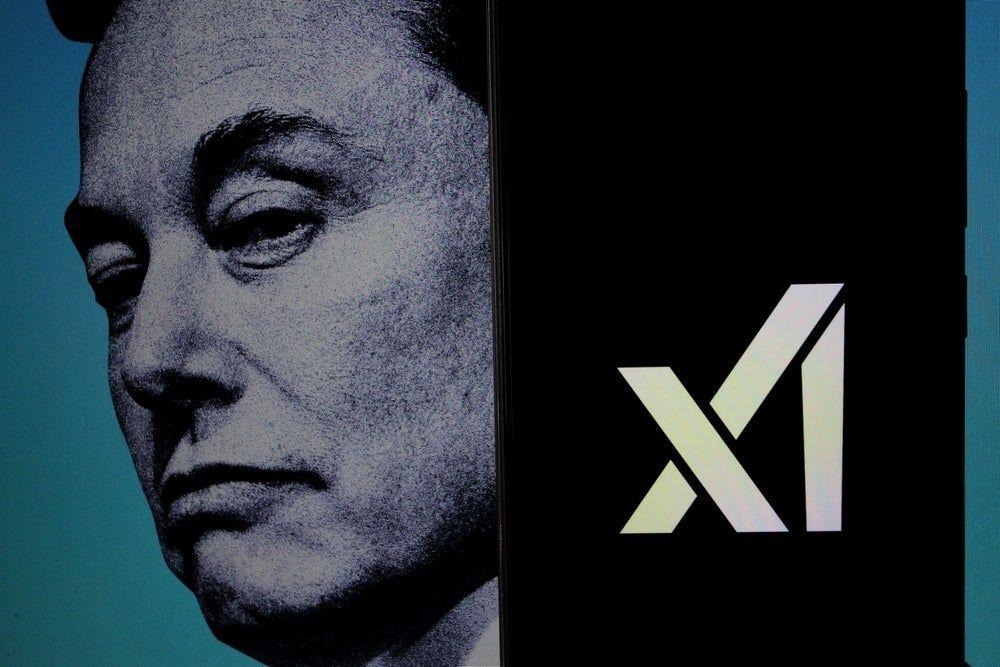
Source: Benzinga
The appeal claims that the SCHD improperly categorized xAI's facility as a new project with no prior emissions sources, despite allegations that operations began in 2024. This categorization allowed xAI to avoid stricter emissions controls and air quality impact assessments
1
. The groups argue that the data center should be classified as a major source of pollutants, potentially emitting at least 900 tons of nitrogen oxides (NOx) per year, far exceeding the 250-ton threshold defined by the Clean Air Act1
.Environmental and Health Concerns
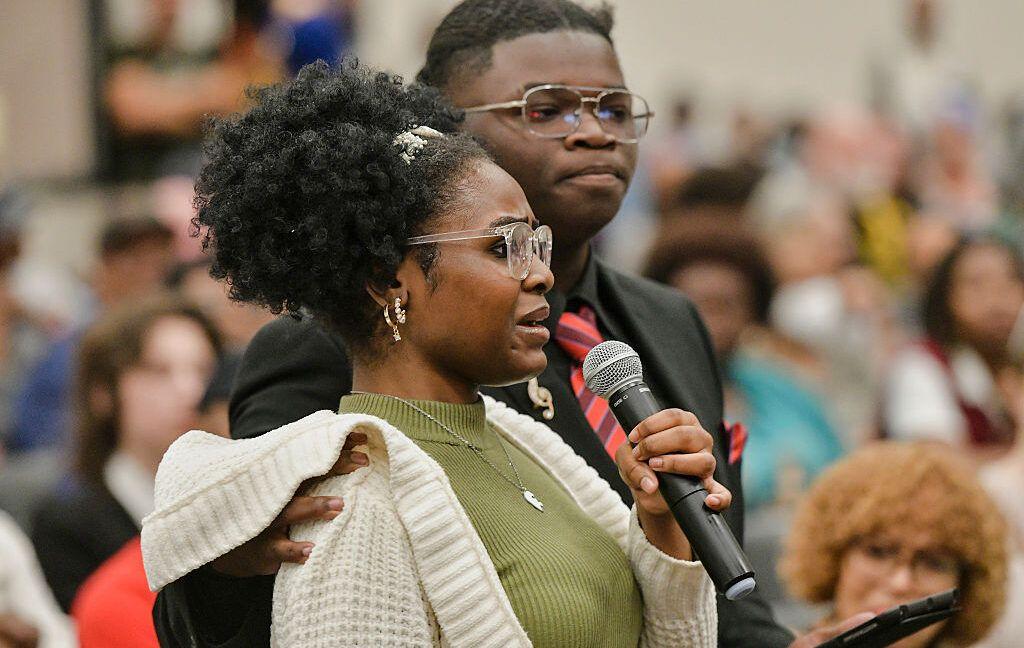
Source: Ars Technica
Residents near the facility have complained about increased air pollution and odors, with concerns that these issues disproportionately affect nearby majority-Black communities
2
. The gas-burning turbines emit nitrogen oxides and formaldehyde, among other pollutants, which have been associated with higher risks of respiratory diseases2
.xAI's Response and New Technology
xAI has defended its position, stating that it "has and will continue to comply with all federal, state and local laws"
2
. In response to the criticism, the company has unveiled plans for a new cooling system using a ceramic membrane bioreactor (MBR) to sustainably supply cooling water to its Colossus Supercomputer3
. This system aims to use untreated wastewater from a nearby treatment plant to cool the facility3
.Related Stories
Broader Implications for AI and Environment
This controversy highlights the growing environmental concerns surrounding large-scale AI infrastructure. As companies like xAI, which powers controversial AI models like Grok, continue to expand their computing capabilities, the environmental impact of these facilities is coming under increased scrutiny
1
4
.Legal and Regulatory Challenges
The appeal filed by the NAACP and environmental groups calls for the Memphis and Shelby County Air Pollution Control Board to revoke xAI's permit and block the exemptions granted by the SCHD
1
. This case may set a precedent for how AI companies' data centers are regulated and permitted, especially in areas with existing air quality concerns.References
Summarized by
Navi
Related Stories
Elon Musk's xAI Accused of Operating Gas Turbines Without Permits at Tennessee Data Center
29 Aug 2024

xAI's Colossus Supercomputer Faces Legal Challenge Over Air Pollution in Memphis
18 Jun 2025•Technology
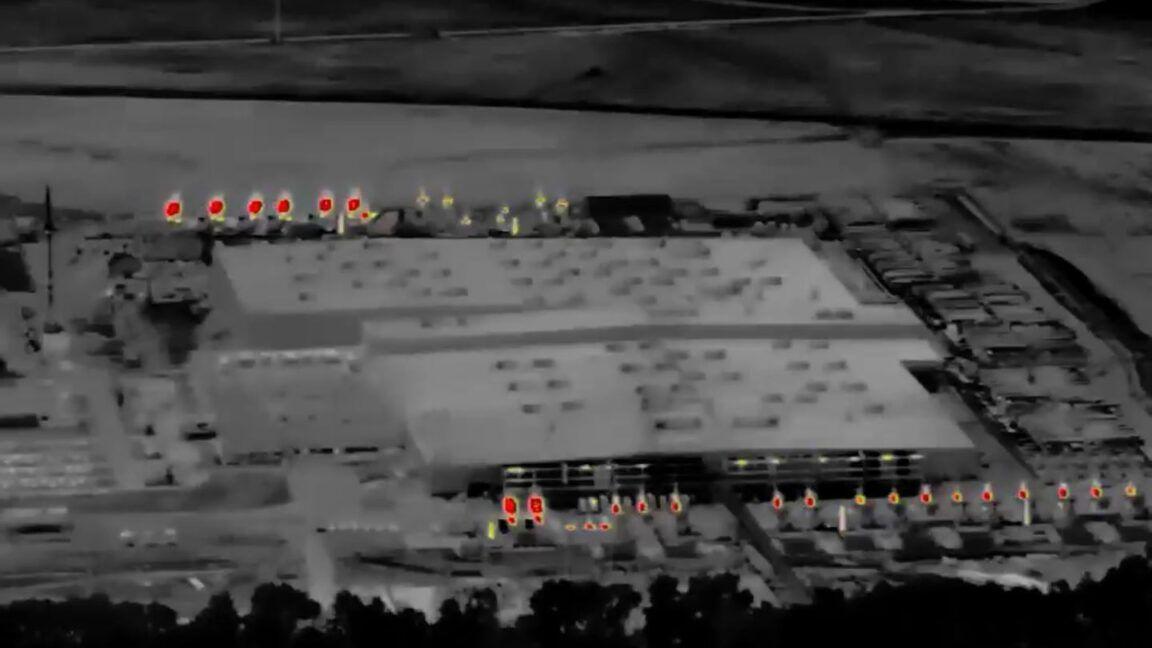
Elon Musk's xAI Faces Environmental Scrutiny Over Unauthorized Gas Turbines in Memphis
10 Apr 2025•Policy and Regulation
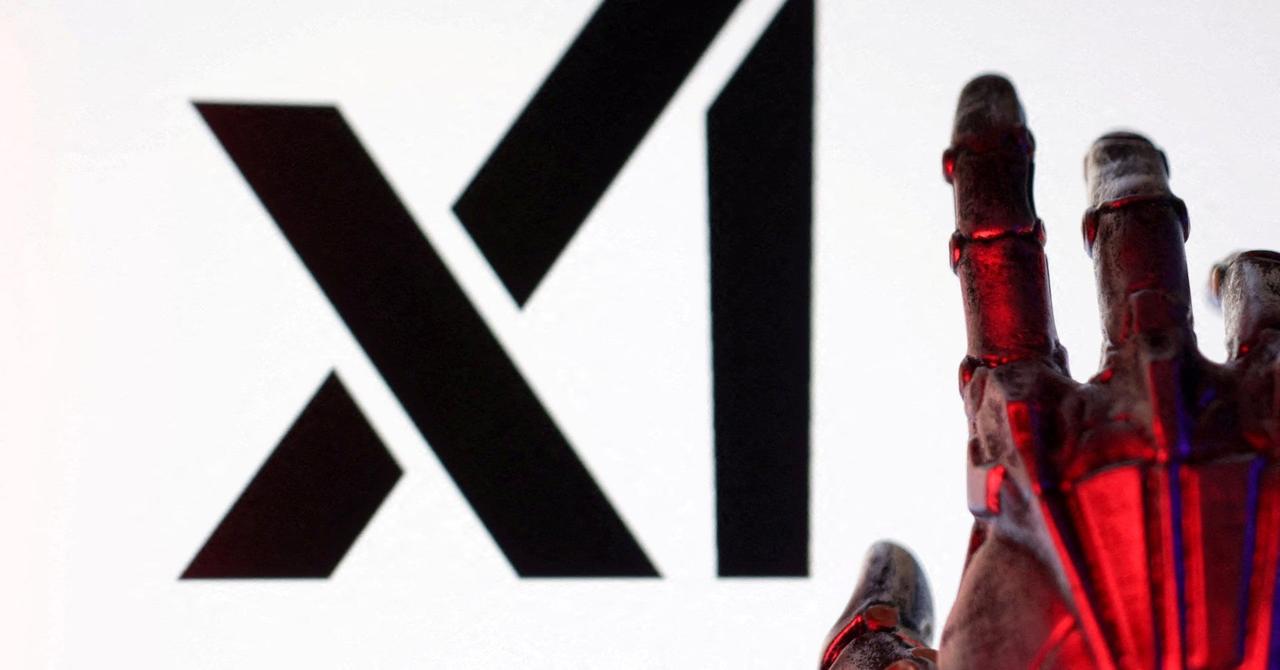
Recent Highlights
1
Pentagon threatens Anthropic with Defense Production Act over AI military use restrictions
Policy and Regulation

2
Google Gemini 3.1 Pro doubles reasoning score, beats rivals in key AI benchmarks
Technology

3
Anthropic accuses Chinese AI labs of stealing Claude through 24,000 fake accounts
Policy and Regulation

